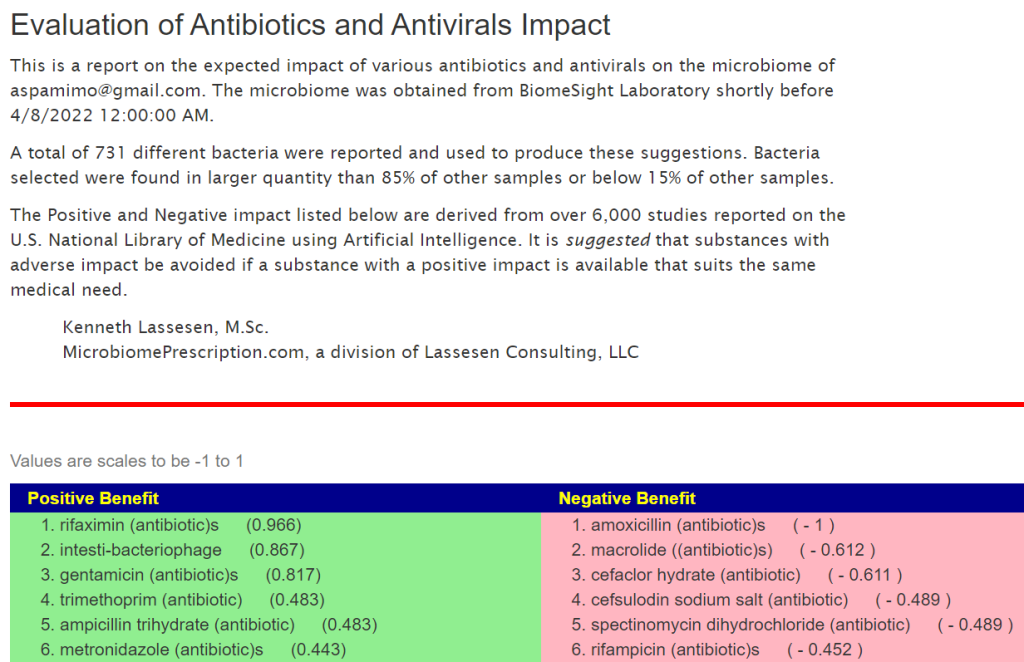This sample reminds me of an earlier sample that was similar frustratingly normal looking despite the person having significant issues. That person went with the suggestions that I could muster for 2 months and then did another sample. His symptoms improved slightly AND the microbiome because usefully abnormal. I am hoping that will be the case with this person.
In terms of mathematic models, the person’s microbiome seems to be on an infection point. The diagram below illustrates this concept with the blue line indicating recovery.

Back Story
- I’m 33 years old and I have been sick for my last 12 years.
- I suffer from:
- Multiple chemical sensitivity,
- Gut issues,
- Severe insomnia,
- Loss of collagen in joints and muscle
- along many others.
- The 1000 doctors that I have visited in Spain never had much idea.
- The OAT test says bad methylation but i don’t know how to interpreted it or what to do, nor my doctors.
- I’ve already doing all the basics, no gluten, cow dairy, processed foods etc.
- I can’t eat much but I eat fish, meat and some very cooked tomato and cauliflower.
- I was diagnosed with Giardia but it was not treated because I did not have diarrhea or constipation.
- I feared the antibiotics causing candida issues. In other test more recent didnt show up but i think was another method of testing
Analysis
See the YouTube for more information and walk thru. Note: Giardia has a high incidence of evolving into chronic microbiome dysfunction (treated or untreated), see this post.
Using Health Analysis Page
- Health Status – 1 Healthy, 7 Unhealthy
- Jason Hawrelak – at 99%ile , no significant issues
- Potential Medical Conditions showed only hypersomnia, the opposite of what is being experienced
Looking at Unhealthy Bacteria, one caught my eye: Rickettsia (i.e. any of the spotted fevers, including Mediterranean Spotted Fever – Boutonneuse Fever). I would suggest getting tested for spotted fevers.
First Probiotics
I am finding that this is a friendly start point because we have multiple logics available to determine them (which, of course, can result in disagreement). To my surprise, nothing showed up – it appears that the collection of bacteria where outside of expected/supported species! (I spent a couple of hours verifying that if was not a coding error). Similar for using symptoms with KEGG Enzymes. This was totally unexpected and a little concerning (both in terms of this person’s microbiome as well as what the site is able to handle). Fortunately, we have the other logic that produces results
The top probiotic suggestions in my view are just two:
- mutaflor escherichia coli nissle 1917 (probiotics) (which is available in Spain 🙂 )
- lactobacillus bulgaricus (probiotics) – typically in many yogurt. NOTE: Mutaflor and this should NOT be taken at the same time, they are hostile to each other. Alternate each one week )
Consensus Report
As has become my custom, I whipped thru all of the suggestions using expert criteria.
- Use JasonH (15 Criteria) – 5 matches
- Use Medivere (54 Criteria) – 5 matches
- Use Metagenomics (59 Criteria) – 5 matches
- Use Nirvana/CosmosId (36 Criteria) – 5 matches
- Use XenoGene (22 Criteria) – 5 matches
- Standard Lab Ranges (+/- 2 Std Dev) – 40 matches (5%_)
- Box Plot Whisker – 68 matches (9%)
- Kaltoft-Moltrup Normal Ranges – 70 matches (9%)
- Percentile in top or bottom 10%ile – 134 matches (18%)
Looking at the consensus number of suggestions for the above, the numbers were similar, suggesting that despite the differences number of bacteria selected, the suggestions were likely similar.

Takes
My personal pick of the top suggestions are below (excluding probiotics cited above):
- oolong teas, green tea
- Cranberry
- Cacao
- lard (instead of butter etc)
- herbs:
Avoids
The following are items that are highest concern in my opinion
- Slippery Elm,
- garlic (allium sativum)
- lauric acid(fatty acid in coconut oil,in palm kernel oil,)
- high-saturated fat diet
- probiotics to avoid:
Number of suggests from best take to worst avoid (139, 53, 40, 116, 25, 63)
The land of Supplements
We only have consensus report producing examples. There was very few items that occurred in more than 1 or 2 suggestions. The best of a poor situation were:
Definitely avoid the following
In general, the rest of vitamins and minerals were too close to come to a conclusion for. In that situation, I would suggest avoiding instead of rolling dice.
Supplemental Information
The reader also provided an OATS test done by Teletest Lab Analisis(laboratory@teletest.es) in Spain (and in Spanish). Abnormal values were (with links to Spanish Wikipedia)
- α-ketoglutaric acid: low
- Indole-3-butyric acid: high
- Methylmalonic acid: low
- Quinolinic acid low
- 5-Hydroxyindoleacetic Acid: low
Post Script
I’ve been prescribed rifaximin + boulardii based on symptoms only. Ive been told is.”” Good antibiotic””
Feedback

We were not as lucky with saccharomyces boulardii (probiotics) which has a 1:3 ratio between take and avoid. I would suggest doing Rifaximin without the boulardii, after the course is finished — give it a try in isolation. Doing both at the same time will generate confusion over the cause of improvement or deterioration. As always, discuss with your MD before doing.
Bad methylation
This was reported from the oats test. “The OAT assesses organic acid markers which indicate methylation status through the crucial cofactors ie B12, folate B9, B6. One of the most sensitive markers for vitamin B12 deficiency is methylmalonic acid and kynurenate is a reliable marker for B6 status.” [Src]
- On safer takes are Cyanocobalamin (Vitamin B-12) and pyridoxine hydrochloride (vitamin B6), with folic acid,(supplement Vitamin B9) being a slight avoid. I would suggest that methylcobalamin, ( methyl B12) as well as methylated B6 be considered over the usual forms.
Recent Comments